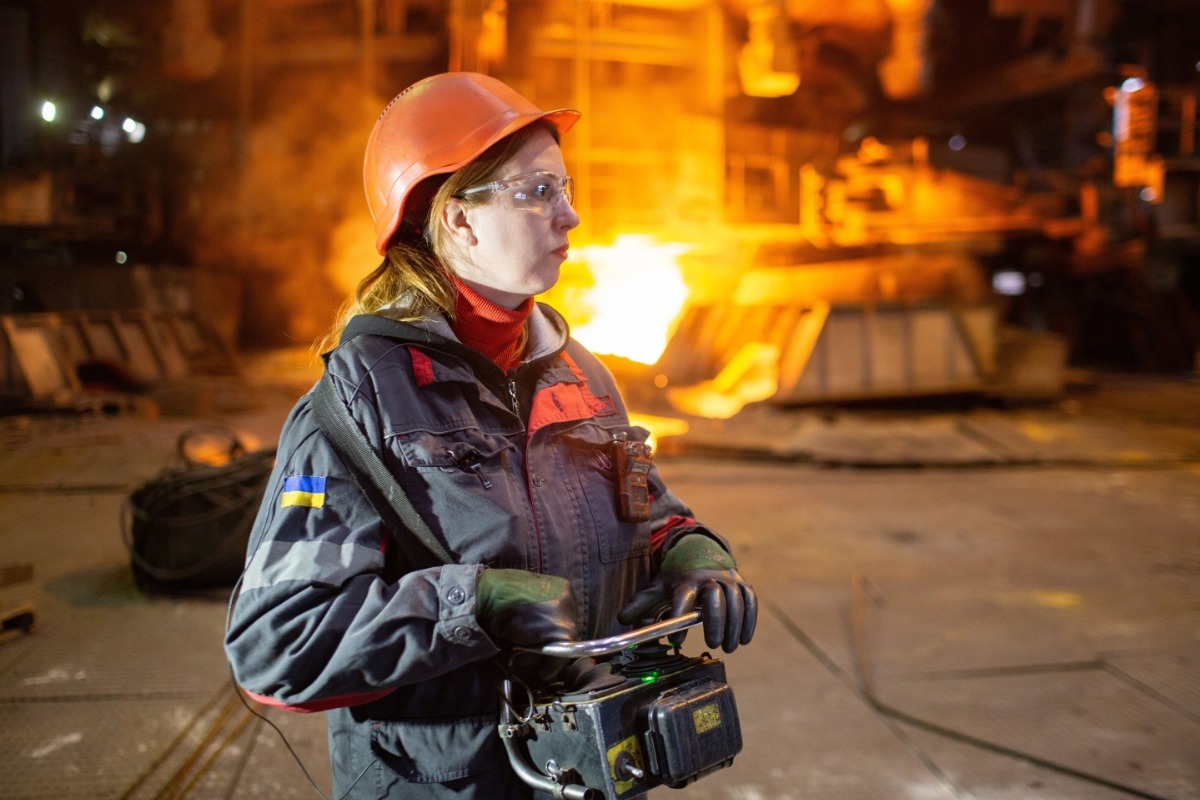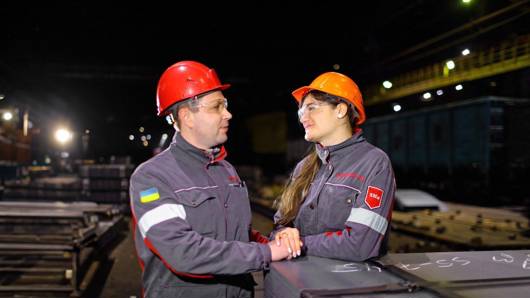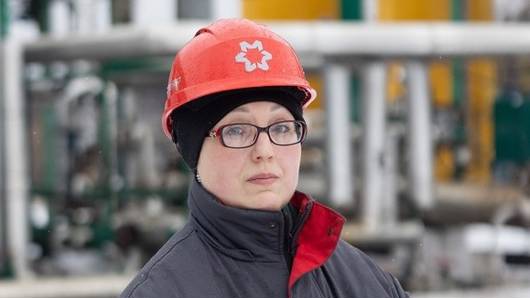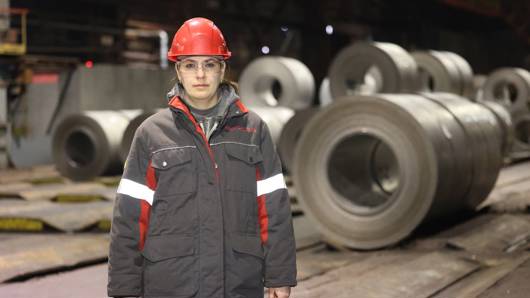A plant employee shares why she decided to tie her professional life to metallurgy and how it feels to work in a predominantly male team.
We meet Hanna Babych in the very heart of Zaporizhstal – at the blast furnace. Although nearly a third of the plant's employees are women, in the blast furnace shop, this is more of an exception to the rule. Hanna is a crane operator working in the casting yard, side by side with gas workers and furnace operators.
"At the production site, I am responsible for the safe and precise movement of various loads, often heavy and oversized. This requires a high level of concentration and skill. Quick reaction time is crucial, but at the same time, you need to act calmly and without fuss," says Hanna BABYCH.
Hanna followed in her parents’ footsteps into the steel profession – her mother worked as a crane operator, and her father was a steelmaker at Dniprospetsstal. Hanna also began her career at that enterprise but later moved to Zaporizhstal, where working conditions and pay were better.

"I wanted to join Zaporizhstal right after finishing high school – it was already my conscious choice back then, but at the time, there were no vacancies. So I worked at Dniprospetsstal for three years, and then finally transferred to Zaporizhstal. I was warmly welcomed; the team here is strong, supportive – I instantly felt at home. The work is interesting, the tasks are always varied, and there’s always something new to learn. I’ve now been part of the Zaporizhstal family for eight years," Hanna notes.
She admits that she has always been curious about complex mechanisms and dreamed of working in an open-hearth or blast furnace shop. Now she feels like she’s exactly where she belongs.
When asked how it feels to work in such a typically "male" role, Hanna immediately corrects:
"I don't agree with that: this is actually a typically female profession, being a crane operator. In the past, only women worked on cranes, even in such hot areas. It doesn’t require strenuous physical effort since everything is automated. And we women know how to handle control!"
In total, over 2,000 women are employed at Zaporizhstal. Hanna Babych herself says she debunks not only the myth that hot shops are not for women but also the idea that a woman cannot successfully work in a male team.
"Sometimes I hear the stereotype that steelworkers are tough people. But I disagree with that too: my colleagues are caring, friendly, with a great sense of humor. I feel very comfortable working in a male team. I can’t imagine myself in any other group," says the steelworker.
Today, more and more women are choosing professions that were traditionally considered male-dominated and are mastering them just as well as men. The women of Zaporizhstal prove through their work that passion and professionalism matter more than stereotypes: the key is not to fear the new and to keep growing.









